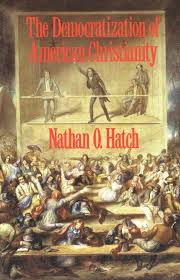Reading Robert Graves’s 1946 novel King Jesus is like undertaking an archaeological dig into intellectual history, as each new layer we excavate reveals changing ideas about Jesus and the Early Church. What makes the book so valuable is that it appeared on the eve of a thrilling new wave of discoveries – Nag Hammadi, the Dead Sea Scrolls – so that we see just how much was known and speculated about on the eve of those new revelations. I have... Read more

















